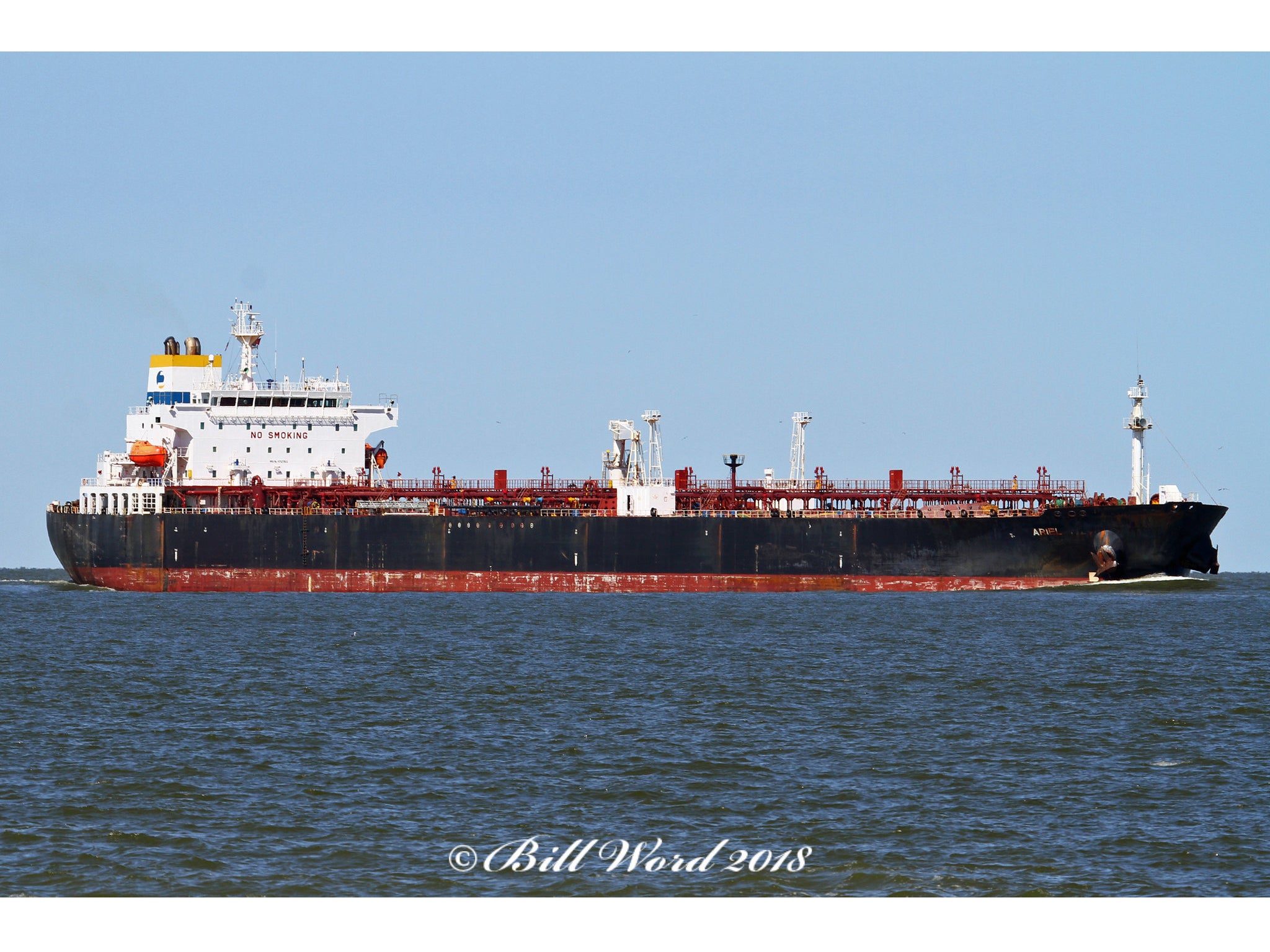Tanker with Russian oil bound for US makes mid-Atlantic U-turn to dock in Wales amid sanction fears
The UK government said it is “looking into” how to handle Russian ships at its ports

A tanker heading to the US carrying an estimated 400,000 barrels of Russian crude oil reversed its course earlier this month, and docked in Britain on Sunday.
ARIEL left Primorsk in Russia on January 29 to head across the Atlantic, before turning back towards the UK on February 14, according to data from websites Marine Traffic and TankerTrackers.com.
Its arrival comes as the UK government dithers over whether to allow Russian ships to land their cargo on British shores.
The vessel arrived in the UK even as the foreign and business secretaries have talked down the country’s reliance on energy imports from Russia compared to other European countries, following its invasion of Ukraine.
A US official told The Independent that they believed the decision may have been informed by concerns over impending sanctions on Russia, even as early as mid-February.
Valero, which has its global headquarters in San Antonio, Texas, and owner of the Pembroke Oil Refinery, did not respond to a request for comment ahead of publication.
ARIEL spent several days just off the UK’s coast before docking at the terminal and it is carrying an estimated 400,000 barrels of crude oil. This could be worth around $39 million (£29m) based on the Brent crude oil-price benchmark currently at around $98 per barrel.
The tanker is now docked at the Valero Pembrokeshire Oil Terminal according to publicly available records held by the Port of Milford Haven, in Wales.
Asked about another Russian vessel due to arrive in Orkney to collect oil later this week, a British government spokesperson said: “I think we are looking into what we can do about either Russian ships or ships with links to Russia using UK ports."
Russian energy exports - its chief source of foreign currencies - are not currently in the scope of Western sanctions. However, banks associated with its energy trade have been hit with financial sanctions, making some transactions more difficult.
Tom Keatinge, director, at the Centre for Financial Crime & Security Studies said on Twitter that “energy payments remain a massive weakness in Western sanctions”.
The oil delivery and the funds it could generate for the sanction-hit Russian economy risks ploughing cash into Russia’s military offensive in Ukraine, an UK government official told the Independent.
On Sunday, Liz Truss, British foreign secretary, said that sanctions were aimed not only at broader financing for Russia’s economy, but also the energy sector:
"The real objective is to degrade the Russian economy because what we know is that Putin's war machine is funded by revenues from oil and gas," Ms Truss said. "So what we have to do is reduce dependency on oil and gas.”
Ms Truss acknowledged that would come with an “economic cost” for British consumers. But that the public would “understand the price we will pay if we don’t stand up to Putin now.”
Fuel prices in the UK rose to £1.51 a litre on Sunday for petrol, while diesel increased to £1.55, according to figures from the RAC.
Subscribe to Independent Premium to bookmark this article
Want to bookmark your favourite articles and stories to read or reference later? Start your Independent Premium subscription today.

Join our commenting forum
Join thought-provoking conversations, follow other Independent readers and see their replies